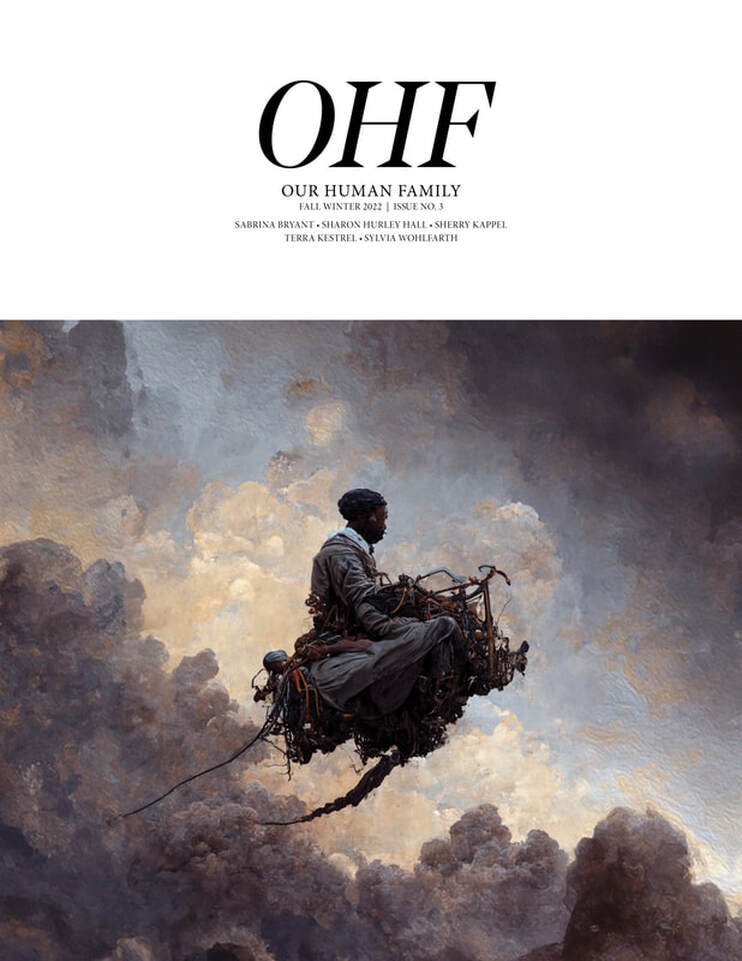OHF Magazine,
Issue No. 3
|
|
Toni Morrison’s accomplishments by the numbers include eleven novels, seven children’s books, two works of short fiction, three plays, one book of poetry, and a libretto; one Pulitzer Prize in Fiction, one Nobel Prize in Literature, one Grammy, seven honorary doctorates (from the University of Pennsylvania, Harvard University, Gustavus Adolphus College, Oxford University, Rutgers University, University of Geneva, and Princeton), one Presidential Medal of Freedom, and over forty various domestic and international awards and honors.
Impressive laurels by any standard, but that they were bestowed upon a Black woman in a field dominated by white men makes them all the more astounding. People who are unfamiliar with Toni’s work often assume that since she wrote exclusively about the Black experience, any meaning of note exists exclusively for and can be deciphered only by Black people. This is patently untrue. Yes, the import of Toni’s canon resonates with Black people. It also reverberates throughout the whole of humanity . . . because, after all, the Black experience is a human experience and confirms far more of what it means to be human than it contradicts. In the past, OHF Magazine editors have tasked contributors with focusing on one specific opus by a particular muse. But for Issue No. 3, because of the depth and breadth of Toni’s body of work, instead of asking our international team of writers to focus on a singular work, we asked each of them to choose their favorite Morrison opus about which to write. Sylvia Wohlfarth chose The Book of Mean People, which explores interactions with adults from a child’s point of view. Sharon Hurley Hall writes about The Bluest Eye and the price of a young girl’s dreams of acceptance. Sabrina Bryant addresses the themes of opposing sexual mores imposed on young Black versus white women in Sula. Sherry Kappel reviews the depth of a mother’s love as presented in Beloved. And Terra Kestrel gleans meaning from one of Toni’s speeches on how to live out one’s purpose, with an admonition about avoiding one major distraction. But what takes these articles to the next level is the writers’ ability to draw relatable parallels between Toni’s texts and their own lives. In doing so, they acknowledge the timelessness and relevance of Toni’s work. On behalf of the editorial and design teams, and myself, we hope you find this publication as an unapologetic celebration of Black women, their resolve, relationships, resilience, and joy in a world that too often fails to give them their flowers. Ladies, your bouquets have arrived. Love one another, Clay Rivers OHF Magazine Editor in Chief Publisher Our Human Family, Inc. Published October 18, 2022 Specifications Dimensions: 8.5” x 11”, Pages: 36 Tags Antiracism, Equality, Enslavement, Literature, Race, Racial Equity, Racism, Toni Morrison, Womanism |
|
